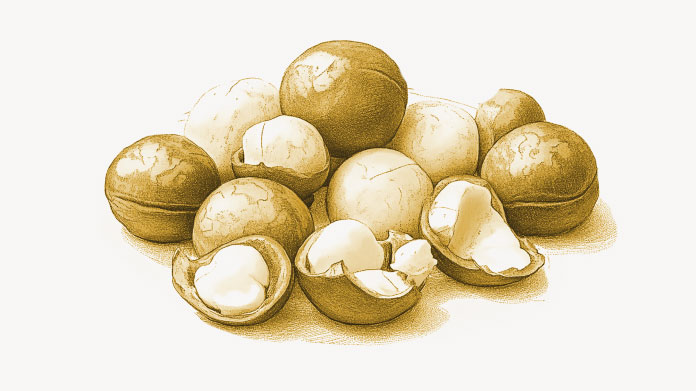
The SuperSmart forest: more than 4000 trees planted in Madagascar
A brief recap on the principle of this operation, launched to coincide with Earth Day on 22 April 2021. Over 4 days, SuperSmart offered customers the opportunity to plant a tree for every product sold, through a collaboration with the organisation Tree-Nation.
There are now more than 4451 trees in the ‘SuperSmart forest’, all of which are located in a planting site called Ankirambo in northwestern Madagascar. You can pay the forest a virtual visit by clicking here.
Reviving the mangrove, thanks to Tree-Nation and the local community
It’s a sad fact that production of charcoal in this region has led to widespread mangrove deforestation. The environmental damage has endangered wildlife, particularly fish ... and as a consequence, the livelihoods of local fishing communities too.
The mangrove reforestation was carried out following Tree-Nation’s Employ-to-Plant methodology: using local trees (usually Rhizophora mucronata mangrove trees), and employing local villagers, etc.
Incidentally, 4451 trees planted represents 1.48 hectares of reforested mangrove, which translates into 89.02 tons of C02 captured! What’s more, healthy mangrove forests help prevent coastal erosion.
Ecology: SuperSmart also prioritises organic and vegan supplements
Increasingly engaged in ecological change, SuperSmart also strives to offer supplements which are ever more environmentally-friendly as well as ever more beneficial for your health.
The most eco-friendly supplements are obviously organic, ie, produced from organically-grown plants where pesticide use is prohibited. Ideally, they are also vegan (free from all animal products). Let’s not forget that intensive livestock farming plays an active role in global warming: greenhouse gas emissions, deforestation to make way for pasture or fields of grain to feed animals ... The less we use animal products, the more the planet benefits.
Our organic and vegan supplements include:
- Organic MCT Oil, an organic, vegan MCT oil obtained from coconuts, with 98% C8 caprylic acid, and known to be non-fattening (1) ;
- Organic ABG10+®, an extract of organic black garlicexcellent for maintaining normal cholesterol levels and offering antibacterial properties (2) ;
- Organic Defense Mix, the perfect oral cocktail of organic essential oils: peppermint to help soothe the mouth and throat, oregano to support gut health, etc. (3) ;
- Organic Turkey Tail, an organic and vegan extract of the wild mushroom Turkey Tail collected by hand, and rich in polysaccharides (4) ;
- and last but not least,Vegan D3, our vegan vitamin D product. Unlike standard vitamin D formulations, this excellent nutritional supplement does not rely on either fish or lanolin from sheep’s wool: Vegan D3 is made entirely from algae guaranteed to be GMO- and pesticide-free (5).
References
- St-Onge MP, Bosarge A. Weight-loss diet that includes consumption of medium-chain triacylglycerol oil leads to a greater rate of weight and fat mass loss than does olive oil. Am J Clin Nutr. 2008;87(3):621–626.
- Banerjee SK, Maulik SK. Effect of garlic on cardiovascular disorders: a review. Nutr J. 2002;1:4. Published 2002 Nov 19. doi:10.1186/1475-2891-1-4
- Horváth G, Ács K. Essential oils in the treatment of respiratory tract diseases highlighting their role in bacterial infections and their anti-inflammatory action: a review. Flavour Fragr J. 2015;30(5):331-341. doi:10.1002/ffj.3252
- Ng TB (1998). "A review of research on the protein-bound polysaccharide (polysaccharopeptide, PSP) from the mushroom Coriolus versicolor (Basidiomycetes: Polyporaceae)". Gen Pharmacol. 30 (1): 1–4.
- Jäpelt RB, Jakobsen J. Vitamin D in plants: a review of occurrence, analysis, and biosynthesis. Front Plant Sci. 2013 May 13;4:136. doi: 10.3389/fpls.2013.00136. PMID: 23717318; PMCID: PMC3651966.
6 Days
The products I use are excel·lent
The products I use are excel·lent
ROSAS Josep Maria
14 Days
Delivery is prompt and I never saw a…
Delivery is prompt and I never saw a quality problem with the manufacturing. It is not possible to assess efficacy on a personal basis, since too many factors come into play. Efficacy can only be assessed statistically with a sufficient number of cases.
Roger De Backer
15 Days
I collaborates with the Supersmart…
I collaborates with the Supersmart more than 10 years. Every thing is going good. Quality of the things is good. Delivery comes in time. Five stars definitely !!!
Oleksiy
15 Days
All good
Simple, frictionless site, easy ordering, good delivery updates and execution.
Chris Robbins
17 Days
I feel better
I feel better
Peter Ammann
17 Days
Prompt delivery
Prompt delivery
JAKUB Radisch
18 Days
My new go-to for top quality supplements!
I am buying more and more of my supplements from this superb, high quality company. Cannot recommend it enough. Plus, excellent customer service with a quick, helpful team and speedy deliveries. Highly recommend Supersmart!
Cecilie H.
22 Days
SUPERSMART WHAT ELSE👍
SUPERSMART WHAT ELSE👍
DIEDERLE Christophe
25 Days
Excellent quality products with…
Excellent quality products with innovative formulas, as someone who has been suffering with acid reflux, these supplements have been lifesavers.
Oriana Moniz
25 Days
high quality supplement!
high quality supplement!
GALANT
25 Days
Good service prompt delivery
Good service prompt delivery
Mrs Marcella Reeves
30 Days
I like your clear explanation
I like your clear explanation. And how to make a choice of products for a specific health problem
Ingrid
37 Days
Great product and it arrives quickly.
Great product and it arrives quickly.
SOMMARIVA Gianni
38 Days
Excellent products and fast service.
Excellent products and fast service. What do we need more?
Margarida
42 Days
The variety of products is amazing
The variety of products is amazing, the offers are good and the sending is very fast. I just miss having a bit more of guidance about combinations, possible interactions, etc.
Maria Angeles Verdu





